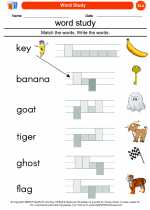Word Study
Word study is an essential component of early childhood education as it lays the foundation for literacy and language development. It involves the exploration and analysis of words, including phonics, spelling, vocabulary, and word recognition. Engaging in word study activities can help young learners develop their reading and writing skills while gaining a deeper understanding of the English language.
Phonics
Phonics is the relationship between sounds and letters. Understanding phonics helps children recognize and decode words while reading and spelling. It is important for students to learn the sounds associated with each letter and letter combination. Here are some key phonics concepts to focus on:
- Letter sounds
- Blending sounds to read words
- Differentiating between short and long vowel sounds
- Recognizing common consonant blends and digraphs
Spelling
Spelling is the ability to form words by arranging letters in the correct order. Encouraging students to practice spelling words through various activities can improve their writing skills and reinforce their understanding of phonics. Some spelling activities include:
- Word sorts
- Word building with letter tiles
- Spelling games
- Using word families to explore spelling patterns
Vocabulary
Developing a rich vocabulary is crucial for effective communication and comprehension. Word study activities can help students expand their vocabulary by introducing new words, exploring word meanings, and understanding word relationships. Here are some vocabulary development strategies:
- Contextual word learning through reading and writing activities
- Using word cards to learn new words and their definitions
- Engaging in discussions about word meanings and synonyms
- Exploring word roots, prefixes, and suffixes
Word Recognition
Word recognition involves the ability to quickly identify and understand words while reading. It is important for students to develop fluency in recognizing words to enhance their reading comprehension. Some word recognition strategies include:
- Sight word practice
- Repeated reading of familiar texts
- Word hunts in texts to identify and categorize words
- Using word walls and word charts for reference
Study Guide
To effectively support students in their word study journey, consider incorporating the following activities and resources:
- Interactive phonics games and apps
- Word study workbooks and worksheets
- Creating word study centers with hands-on activities
- Reading aloud and discussing new vocabulary words
- Encouraging students to write and spell regularly
- Using word study assessment tools to track progress
By embracing word study as an integral part of the curriculum, educators can help young learners develop a strong foundation in language arts and literacy.
[Word Study] Related Worksheets and Study Guides:
.◂English Language Arts Worksheets and Study Guides Kindergarten. Word Study
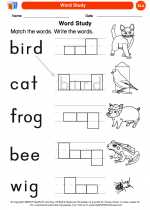
 Coloring Worksheet
Coloring Worksheet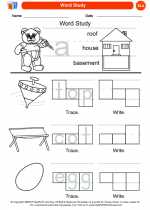
 Coloring Worksheet
Coloring Worksheet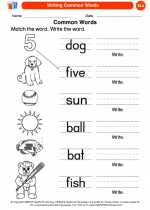
 Coloring Worksheet
Coloring Worksheet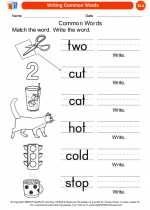
 Worksheet/Answer key
Worksheet/Answer key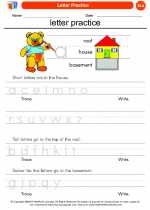
 Worksheet/Answer key
Worksheet/Answer key
 Worksheet/Answer key
Worksheet/Answer key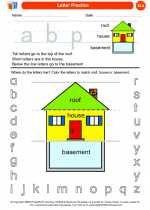
 Worksheet/Answer key
Worksheet/Answer key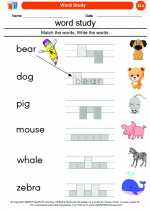
 Worksheet/Answer key
Worksheet/Answer key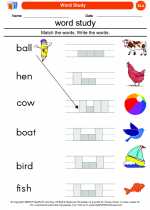
 Worksheet/Answer key
Worksheet/Answer key